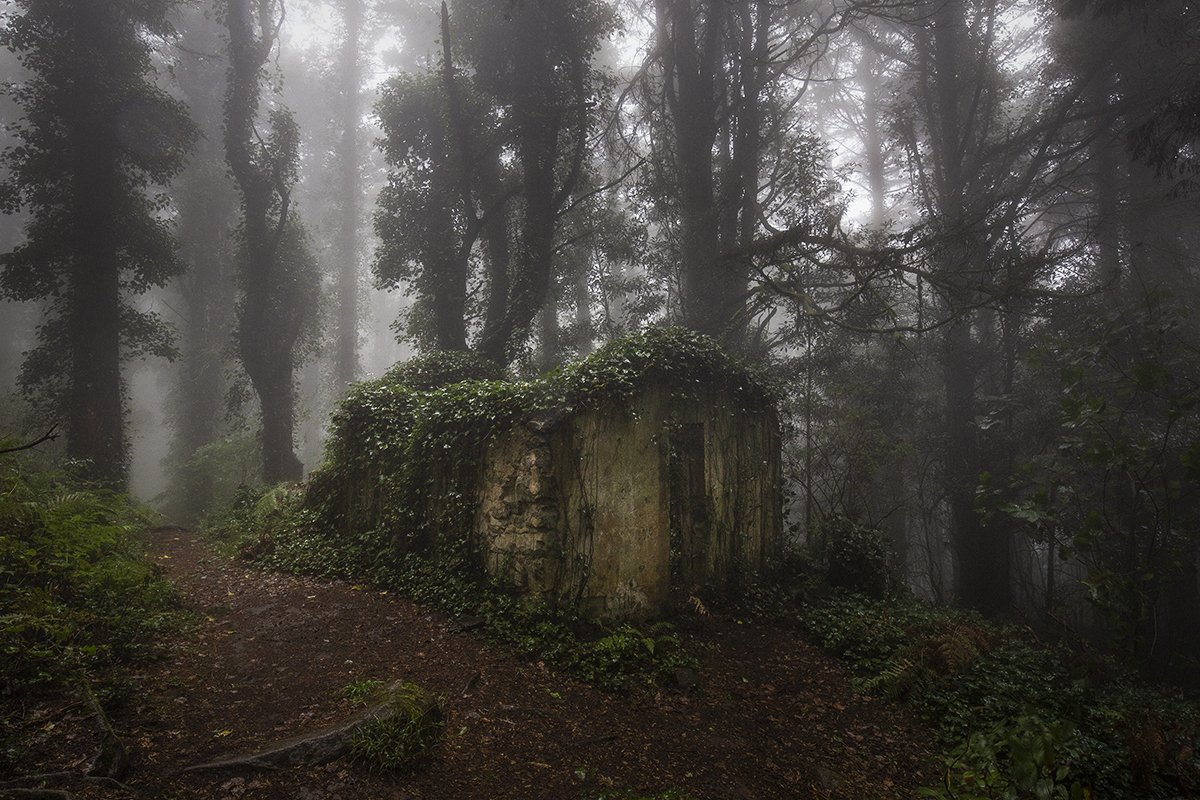Decomposing the familiar
We wander through Sintra’s Eucalyptus forest. Thick fog drifts between towering trees. We’re enclosed in the mystery of the world. The path we follow downhill leads to an abandoned cottage, its crumbling walls pieced together by ivy and the cement of our imagination.
Life, like the cottage in ruins, is impermanent. What is today will ultimately perish. Our bodies and buildings buried beneath the ground. Man-made structures crumble when the stories that created them have lost their meaning. In a secularized society, churches are left to decay and shopping malls have become the new places of worship. Mental asylums are closing down as our understanding of pathology and healing evolves. Abandoned places show that there is a possibility for decomposition and renewal in how we live, relate, and organize ourselves as a society. A ruin becomes a portal into the past, an invitation to tune into the present moment and reimagine the future, one that is founded on a different story altogether.
That is not to say that we should tear down walls and raze ruins to the ground. How quick we are sometimes to eradicate the traces of old, only to replace it with the functional new. Swift in our actions to return to a sense of the familiar and the well-traversed. Instead, we are called to listen to the stories already unraveling in front of us.
Roots break through cracks, birds take up residence between outworn stones. We are not the only agents storying the world.
Sympoiesis poses the questions: Which structures are refusing to fall? What aspect of decay are we — as individuals, as groups, as a society — resisting against? From the ashes of the old, what are the new stories and structures that will stand the test of time? How do we co-inhabit this planet harmoniously with our more-than-human companions? How do we stay awake and attuned to other life forms and learn from them? What stories want to be told?

